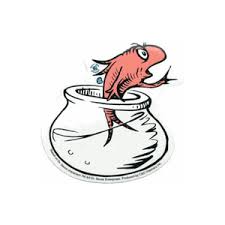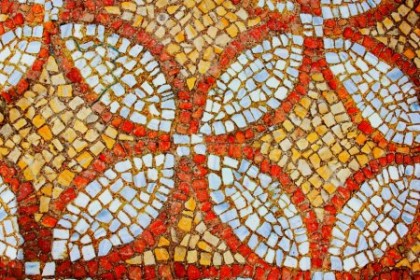Too Much, Too Little, Too Late
Devra Torres | Sep 6, 2014 | 26 cmts
Lots of people are haunted by the sense that they’re not doing enough, not becoming what they were meant to be, not doing what they were put on earth to do. Their efforts seem pointless. For some, this worry amounts to an ever-present low-grade despair, lurking in the background.

There are plenty of possible reasons for this, but rooting out one particular misunderstanding has been especially helpful for me.
Faced with a crisis, a tragedy, or just a looming mountain of laundry or paperwork, it’s easy to get paralyzed for lack of knowing where to begin. Of course, we could begin anywhere. “Ninety percent of life is just showing up,” says Woody Allen, and “Well begun is half done,” says Aristotle. (How’s that for strange sentence-fellows?) The idea that just beginning at all is a crucial step in the right direction is an ancient one—so what is it that stops us?
Here’s the false alternative that stops me: On the one hand, I could try to accomplish it all—but that’s impossible. In the words of Dr. Seuss' Cat in the Hat:

This mess is so big and so deep and so tall / We cannot pick it up. / There is no way at all.
On the other hand, I could do what little is in my hands—but that’s so little, it’s not worth bothering.
So I do nothing at all.
Maybe the problem is the suffering of refugees across the ocean, the education of my six-year-old, or the reclaiming of a storeroom stuffed to the gills with broken lampshades and worthless (or maybe crucial and irreplaceable) documents,

But what if I go ahead and start with some little part of it? If I want to help the refugees in Iraq, I can gather up the money in our pushke (Yiddish for “container set aside for accumulating alms”)

and write a check to the Knights of Columbus matching fund for that purpose. What will that accomplish? Very little. It’s mostly pennies. I might easily decide to skip it altogether. Then the refugees would get a little (just a very little) less help, my own soul would become a little (just a little) bit harder, and my children would miss out on a little (just a little) bit of good example and moral formation.

(Update: we did count the money, write a check in the amount of the pittance in question, find the address, address the envelope, find a stamp, and send it off. If nothing else, it has shamed us into a resolution to be more generous with the pushke from now on.)
The trouble is, if we take the do-nothing approach over and over, it adds up to enormous amounts of good left undone. I'm not capable of big dramatic actions, but if you add up all the little tiny actions I am capable of, it comes to more than you'd think.

Another thing to remember is, when we’re talking about unrepeatable human persons, you can count them, but you can’t quantify them: you can’t exhaust their meaning by considering quantity per family, country or planet.
So if it’s a question of solving some human problem, it makes no sense to evaluate an action solely according to how many people it helps. Like the utilitarians, we desire "the greatest good for the greatest number." But unlike them, we see the truth in the Talmudic saying:
Whoever destroys a soul, it is considered as if he destroyed an entire world. And whoever saves a life, it is considered as if he saved an entire world.
Or as John F. Crosby explains it in the "about" section of this blog:
A human society is not a whole composed of parts, but rather, in the felicitous expression of Maritain, a whole composed of wholes.
Remember, too, the old story of an old man who comes across a little child on the beach after a storm. The beach is strewn with stranded starfish, and the child is walking around picking them up, one by one, and throwing them back into the water. The man inquires: "Why bother, since there are more of them than you can possibly save? What does it matter?"

The little boy looks at the starfish he's holding.
“it matters to this one,” he replies.
* * * * *
The mess is as big and as deep and as tall as it ever was. That doesn't mean we should make peace with paralysis. And maybe if we do the little that's in our hands, it will draw down more grace than we expect.


Comments (26)
Peter
Sep 23, 2014 10:45am
Thanks for the inspiration Devra. When Jesus said, "Do unto others as you would have them do unto you." It wasn't just an admonition. He was stating a spiritual law. This law is better known in other traditions as the law of karma. What this means is that our actions, whatever they are, have an equal and opposite reaction. What we do defines us not only in the abstract, but in the concrete. This spiritual law pervades all existence, even our direct experience of the world. It's not something that is enigmatic. Newton's third law reflects this spiritual law in the concrete world and serves as a sign of its objective "form" in spirit for all observers of concrete phenomena. What you are talking about is actually more real than what you are suggesting it means. But how easy it is to forget that what we do always comes back to us.
Peter
Sep 24, 2014 1:07am
A correction is needed for the following quote from above:
"This spiritual law pervades all existence, even our direct experience of the world."
According to Catholic doctrine I would think this spiritual law may be valid due only because of the doctrine of original sin, because according to Catholic doctrine there is no escaping original sin, which would be the limiting factor for the greatest possible level of consciousness for the human being's experience of its "existence". But Meister Eckhart seemed to have proved this wrong with his theory of the absolute principle of the intellect without being and his breakthrough insight of univocal causality. According to Eckhart's theory and insight, the sentence above needs to be revised to: "This spiritual law pervades all human experience up to a certain point of awareness, and then karma no longer applies." This is so because Eckhart's theory and insight describe a nondual experience without the kind of causality attributed to karmic events.
Also, according to Buddhist and Hindu religions, it's an open question whether one can transcend the ego, and if one does, then karma would not apply. So the sentence would need to be changed similarly for these practitioners as well.
Peter
Sep 24, 2014 1:13am
The statements in the comment box above are valid only if original sin as Catholics conceive of it, and the ego as Buddhists and Hindus conceive of it are the same thing.
Peter
Sep 24, 2014 1:31am
I suppose that Meister Eckhart's theories could circumvent a breach in doctrine if it was believed that yes, temporary transcendence of original sin is possible but not permanent transcendence. But who could know except someone who has had the experience? What if having the experience meant that you were permanently free from original sin. Surely this is against church doctrine, but how does someone know this without having the exact experience as Meister Eckhart or the exact experience of anyone else? It's not possible to know these things, therefore should it be presumptuous to make such doctrines?
Devra Torres
Sep 26, 2014 2:53pm
Peter, please excuse the delay! I was traveling, and then when I finally got back online I wanted to do justice to your comments, rather than whipping off a quick response.
I won't pretend to be very familiar with the concept of karma. or with Meister Eckhart. I do tend to be skeptical about the idea that different religious traditions are ultimately saying the same thing, but in different ways. There's certainly overlap, but there are also substantial differences.
If, in general, you mean that "what we do comes back to us," I would say, yes and no. In the Catholic understanding, no thought or deed of ours is ever hidden from God, even those that seem to us most private and secret. And the moral weight of our own deeds is known only to God, not even to us, so only He is "qualified" to see to the balance of our actions and that which happens to us. As for our own free decisions, we are called to "do unto others as we would have others do unto us," but of course sometimes we do and sometimes we don't.
Devra Torres
Sep 26, 2014 3:05pm
If the meaning of karma is that our actions, whatever they are, have an equal and opposite reaction, then I don't see how we could ever know, or "prove" whether this is true. In the Catholic understanding, we take seriously the passage of Scripture that says God will "render to each man according to his deeds"--but also the one that says: "Give, and it will be given to you. A good measure, pressed down, shaken together and running over, will be poured into your lap." Gpd is just, and He is also generous, so that it's not just a question of a perfect balance, but of human beings receiving--if we freely cooperate--far in excess of what we "have coming to us."
Original sin is understood as a hinderance to both our knowledge and our power to do good. It doesn't cancel out our free will, but it's an obstacle to the exercise of it.
I think what's distinctive about the Christian understanding of the ego, original sin, and the workings of justice as applied to our actions and their consequences is that it's so personal. God is a personal being who chooses to create the universe in a certain way. (conintued)
Devra Torres
Sep 26, 2014 3:09pm
...and we are free, personal beings, also. Our actions depend on our choices and are not predetermined or ultimately subject to impersonal forces. Even the free, personal choice of Adam to eat of the fruit of the tree might have been otherwise, and God's decision to shield us from its consequences was a free, personal choice on His part.
Well, I hope all of this has addressed something of your meaning! In any case, welcome to the conversation.
Peter
Sep 27, 2014 11:47am
Thanks for your response Devra. Here is my response to your response:
Socrates was an agnostic monotheist and even though the Catholic faith would not exist without Jesus as both man and God, the foundations for the philosophy from which Catholicism predicates was rendered in Socrates’ spirit through Plato, Plotinus, Augustine and to a lesser degree yet still with influence was Aristotle through Aquinas. Indeed all religions do not say the same thing, but according to the Catholic faith they all share the same God. A Catholic person has faith in one objective metaphysical reality in three Persons, the Trinitarian God.
As such, by definition the Catholic faith claims the same God for all creation including persons with other faiths claiming a different God or Gods with different names using different philosophies that describe them in a different language in a different cultural and historical context. It is a contradiction for a Catholic to say, “Our God is different than other religions’ Gods,” when at the same time the Catholic is claiming an objective metaphysical reality as God. Catholics claim one God. It is a monotheistic religion even as one God in three Persons.
Peter
Sep 27, 2014 11:48am
Many other differences yes, but for the Catholic all religions share the exact same God. The question is this: For the Catholic is it merely a matter of language, culture, historical learning and selection of philosophies employed that amounts to preferences made by free choice, which define and therefore separate the world’s religions because it can’t be differences in Gods.
Peter
Sep 27, 2014 11:53am
Please excuse the punctuation error on the last sentence in the comment box above. It should read:
The question is this: For the Catholic is it merely a matter of language, culture, historical learning and selection of philosophies employed that amounts to preferences made by free choice, which define and therefore separate the world’s religions because it can’t be differences in Gods?
Katie van Schaijik
Sep 27, 2014 12:11pm
I don't see the difficulty you seem to see, Peter.
There is only one God, who is a Holy Trinity of three Persons. This, as you point out, is what Catholics hold.
But it doesn't follow that all religions share the same God, since there are also such things as idols and demons, i.e., false gods.
Further, there are true and false and more or less adequate human understandings of God and modes of approach toward God.
There is no contradiction at all between believing that there is only one God (and that those who are sincerely religious and conscientious are relating to Him) and that some religious doctrines are false or inadequate.
What we think separates Catholicism (and Judaism) from all other religions is that our faith is grounded on God's Revelation of Himself, not on our philosophies or speculations or traditions about the meaning of religious experience.
Peter
Sep 27, 2014 1:02pm
Thanks for responding Katie. This is what I'm saying:
You say:
"There is only one God, who is a Holy Trinity of three Persons. This, as you point out, is what Catholics hold."
I say:
And this God being an objective metaphysical reality that is a Holy Trinity of three Persons, and as this God is omniscient, omnipotent and omnipresent, this God predicates it is the God of other persons too, not just the God of Catholics.
You say:
"But it doesn't follow that all religions share the same God, since there are also such things as idols and demons, i.e., false gods."
I say:
According to the God I just described, which is the Catholic God it does follow.
You say:
"Further, there are true and false and more or less adequate human understandings of God and modes of approach toward God."
I say:
Yes absolutely, and these understandings are predicated by persons and not by Gods.
You say:
"There is no contradiction at all between believing that there is only one God (and that those who are sincerely religious and conscientious are relating to Him) and that some religious doctrines are false or inadequate."
Peter
Sep 27, 2014 1:09pm
I say:
Yes, absolutely.
You say:
"What we think separates Catholicism (and Judaism) from all other religions is that our faith is grounded on God's Revelation of Himself, not on our philosophies or speculations or traditions about the meaning of religious experience."
I say:
Yes, and because the Catholic God is defined as an omniscient, omnipotent and omnipresent objective metaphysical reality it applies, for the Catholic, to other persons and their religions, therefore for the Catholic all religions share the same God.
Katie van Schaijik
Sep 27, 2014 1:44pm
What you say doesn't make sense to me, I'm afraid. Maybe I'm misunderstanding.
Yes, God is the God of all persons, not just Catholics. It doesn't follow that all persons understand Him rightly or follow Him truly.
He is omnipresent, but He isn't all there is. There is also His creation, including demons, and human beings, who, being free, are capable of creating idols and false religions, and religions that are mixed bags of truth and error, good and evil.
Insofar as other religions are true, and insofar as any human person's religious acts are sincere, they are directed toward the One True God.
Peter
Sep 27, 2014 3:55pm
Thank you for responding Katie.
You say:
"Yes, God is the God of all persons, not just Catholics. It doesn't follow that all persons understand Him rightly or follow Him truly."
I say:
I have already affirmed this above as being square with my conclusion that, for the Catholic all religions share the same God and that it doesn't follow from that that all persons understand him rightly or follow him truly.
You say:
"He is omnipresent, but He isn't all there is. There is also His creation, including demons, and human beings, who, being free, are capable of creating idols and false religions, and religions that are mixed bags of truth and error, good and evil."
I say:
I have already affirmed that to be square with my conclusion above.
You say:
Insofar as other religions are true, and insofar as any human person's religious acts are sincere, they are directed toward the One True God.
I say:
I affirm that comment to be square with my conclusion.
Peter
Sep 27, 2014 3:56pm
So the question remains:
For the Catholic is it merely a matter of language, culture, historical learning and selection of philosophies employed that amounts to preferences made by free choice, which define and therefore separate the world’s religions because it can’t be differences in Gods?
Katie van Schaijik
Sep 27, 2014 4:05pm
You've a repeated a question that I don't understand. It makes no sense to me. Maybe you could try expressing your point another way?
Peter
Sep 27, 2014 4:36pm
If, for the Catholic, all religions share the same God, then for the Catholic, what is left for all religions to hash out is merely language, culture, disparate historical references and philosophies and not differences in Gods. Is this true for the Catholic?
Peter
Oct 9, 2014 6:48pm
Can someone please explain to me how the personalist project concludes that no other persons besides Jews and Christians have the spiritual resources to acknowledge unconditional worth in all human persons? Thanks.
Peter
Oct 10, 2014 11:18pm
I understand that God revealed Himself to Adam and Eve, Noah, Abraham, Moses, and the Prophets, established covenants and became Jesus, Jesus starting the Apostolic Succession by sending Peter etc., the Ecclesia and how God revealed Himself through this chain of events. I respect a person's freedom to choose for themselves what they want to believe and follow and I respect the meaning of Tua Res Agitur. I support a person's authentic life of faith. I believe it is a beautiful and important thing. I understand that former Pope Bededict XVI issued a commission report clarifying the meaning of "Ecclesia" and Apostolic Succession and separating the Catholic Church as the one true church. I respect the freedom to choose to follow this interpretation. It would seem wise for one religion to acknowledge the authentic revelation of God in all authentic faiths including their own, and I have sound arguments for this position. I know this has been argued for the past 3000 years or so, so I do not want to belabor it anymore. That is all I will say unless someone wants to converse about it. God bless. Thanks Devra, for initially giving me such a warm welcome!
Katie van Schaijik
Oct 11, 2014 10:29am
Peter, Sep. 27 at 4:36pm
If, for the Catholic, all religions share the same God, then for the Catholic, what is left for all religions to hash out is merely language, culture, disparate historical references and philosophies and not differences in Gods. Is this true for the Catholic?
I'm sorry, Peter, I'm still not understanding you. I have already said what I hold, and what you seem to reject, namely that from the fact that there is only one God it does not follow that all religions share Him, since there is such a thing as false gods.
Nor, in the Catholic view, are doctrines reducible to the merely human.
Katie van Schaijik
Oct 11, 2014 12:38pm
Peter, Oct. 9 at 6:48pm
Can someone please explain to me how the personalist project concludes that no other persons besides Jews and Christians have the spiritual resources to acknowledge unconditional worth in all human persons? Thanks.
This question deserves a post of its own. I've just made a start answering it on the main feed.
Peter
Oct 16, 2014 6:06pm
Persons don’t have “false gods” they have misunderstandings, those of which persons with other “false gods” or misunderstandings call “false gods”.
The term “false god” is oxymoronic and the notion of a “false god” is an empty one. There is no objective metaphysical reality in existence besides the One True God. God is complex and has many mysterious qualities and attributes that persons have attributed separate, distinct and objective metaphysical realities apart from God to, but any of these that can truly be attributed to God are derivative of the One True God and are merely references to the One True God’s spiritual powers by degree and kind.
Anything else that cannot truly be attributed to God that someone may call a metaphysical reality is a misunderstanding attributed to the limited awareness of the person. Examples of misunderstandings attributed to the limited awareness of persons are demons and/or ghosts; these are not objective metaphysical realities. They are real in the sense that they can be dangerous and destructive to persons who experience them and to others who find themselves in their path, but they are merely misunderstandings and have no bearing against the spiritual powers of God.
Peter
Oct 16, 2014 6:10pm
The One True God reins over persons under such misunderstandings the same as He does persons who see Him clearly, persons all of who are subject to God’s Divine Providence.
More specifically and to frame it for the Catholic, these misunderstandings are unresolved aspects of the person stemming from the person’s connection with original sin and either made more convoluted by the free choices of the person or relinquished by freely choosing to surrender to God one’s unresolved aspects stemming from original sin, thereby removing the obstruction to God to the extent possible for the person and thus increasing the person’s awareness of God.
These kinds of misunderstandings are the obstructions to seeing and experiencing true spiritual power. As a Catholic, you could say we all have these misunderstandings to a certain degree so that even the “god” that Catholics refer to falls short of the Real Thing and thus even Catholics may worship “false gods” and have misunderstandings.
Peter
Oct 16, 2014 6:16pm
Through Grace if a person is fortunate enough, the person may experience flashes of God or insights into God, which can remain anchored in the psyche as reference points for reframing the person’s reality.
The term “false gods” is a misnomer for misunderstandings under the One True God. All persons of all religions share the same God and all religions may be operating under misunderstandings unique to the religion. For Catholics, Jesus Christ was the One True God, and having the teachings of Christ at Catholicism’s disposal is a great advantage to encountering the One True God, but this doesn’t mean persons who practice Catholicism are not operating under misunderstandings of the One True God.
This is due to: 1) the inherent problems of translating the teachings of Jesus Christ into a religion and 2) the nature of each person’s unique spiritual potential. There are no such things as “false gods”. There is only God and misunderstandings.
Peter
Oct 16, 2014 6:18pm
This brings up the next point about doctrines. Doctrines are rules written by human beings. God does not write rules. God can inspire rules and humans can do their best in translating God’s revelation of The Rule into rules but God does not write rules, God is the Rule.
This reminds me of Flannery O’Connor’s quote from, A Prayer Journal:
“No one can be an atheist who does not know all things. Only God is an atheist. The devil is the greatest believer and he has his reasons (p74).”